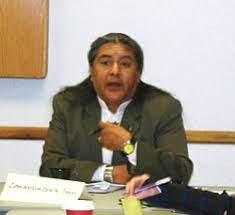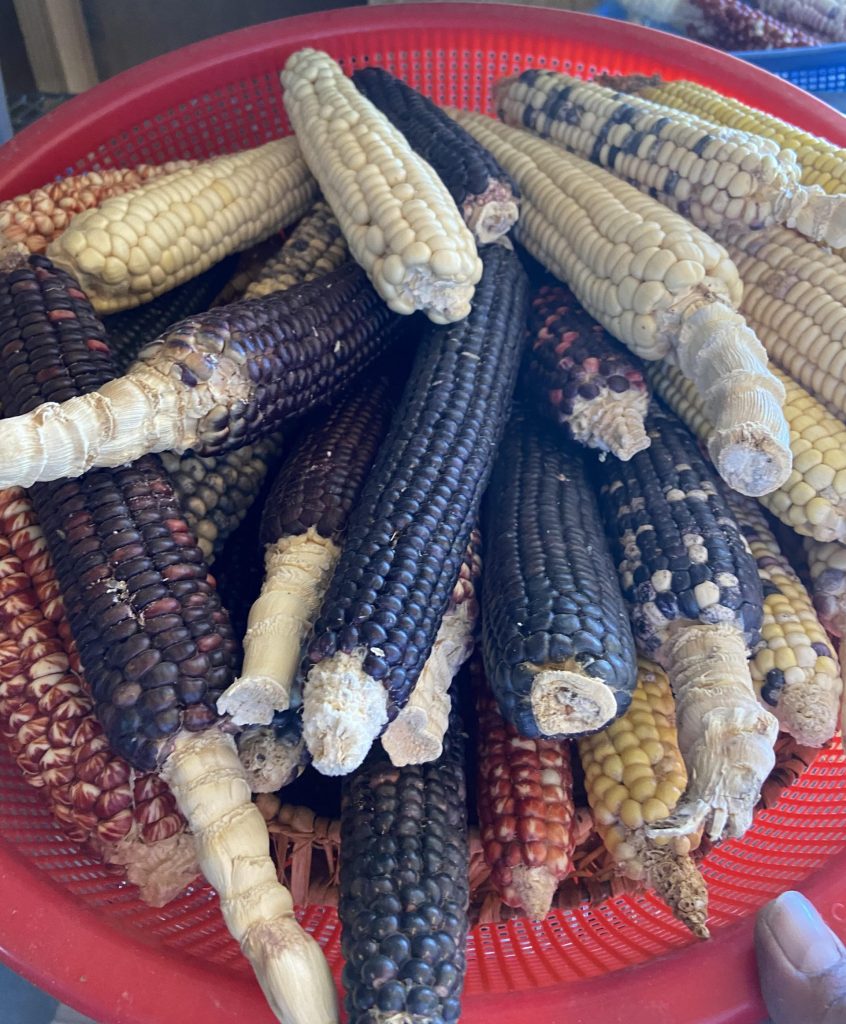February 25, 2024
Looking up to the distant mesas with majestic clouds in the background, one can only wonder how life in academia is for members of our community. From the corridors of universities to the sacred mesas of our homeland, Hopi scholars have forged paths of knowledge, breaking barriers and inspiring generations to come. As a Hopi journalist, it’s my privilege to unravel the tapestry of their accomplishments, tracing back to the earliest pioneers who dared to dream beyond the horizon.

Growing up on the Hopi Nation in the 70’s and 80’s, a college education was virtually unheard of, and little was known that one of our own, Dr. Frank Dukepoo, who began his journey at Arizona State University in 1961, was well on his way to becoming the very first Native Americans to earn a Ph.D. in genetics. His father, Tony Dukepoo was born in Walpi and was inspirational in his son’s academic journey.

In 1973, he etched his name in history as the first Hopi to earn a Ph.D., a testament to his perseverance and intellect. Dr. Dukepoo’s doctoral degree in Zoology from Arizona State University not only symbolized personal triumph but also illuminated a path for future generations to follow. Dr. Dukepoo was influential in founding organizations like the Society for Advancement of Chicanos/Hispanics and Native Americans in Science (SACNAS) and the American Indian Science and Engineering Society (AISES). These organizations aim to support and empower Native American, Hispanic, and other underrepresented minority students and professionals in STEM fields.
Following in his footsteps, Dr. Lomayumtewa Ishii, emerged as another beacon of academic excellence. With a profound dedication to preserving Hopi culture and advancing knowledge, Dr. Ishii attained a Ph.D. in History from the Northern Arizona University in 2001. His research delved deep into the intricacies of Native American life, bridging the gap between academia and indigenous wisdom. It was Dr. Ishii who really made our people more aware of academia and how people from our communities were obtaining doctoral degrees.

In the realm of linguistics, Dr. LaVerne Masayesva is the first and possibly the only Hopi person to earn a Ph.D. from the Massachusetts Institute of Technology. Dr. Masayesva also blazed a trail, earning a Ph.D. from MIT and one of the first and only Hopi women to possess a Ph.D. for many years. Her commitment to improving Indigenous languages and addressing disparities among Native communities exemplifies the intersection of academic achievement and community service. It wasn’t until 2002 that the second Hopi woman joined the ranks of earning a Ph.D. and this time it was from Harvard University.

The journey of Hopi Ph.D. pioneers transcends individual accolades; it embodies resilience, cultural pride, and a relentless pursuit of excellence against formidable odds. Their endeavors have not only enriched the academic landscape but also empowered future generations to embrace their heritage while embracing the opportunities of higher education. They have overcome many barriers and obstacles to become Hopi leaders in academia and should be proud considering only 7.9% of Hopi Sinom have a bachelor’s degree or higher according to the 2022 census Data.

However, the road to academic success for indigenous scholars has been fraught with challenges. Historical injustices, systemic barriers, and cultural assimilation have posed formidable obstacles. Yet, the legacy of Dr. Dukepoo, Dr. Masayesva, Dr. Ishii, and countless others serves as a testament to the unwavering spirit of the Hopi people, steadfast in their pursuit of knowledge and empowerment.

As we commemorate their achievements, let us reaffirm our commitment to supporting aspiring scholars within the Hopi Nation and beyond. Through education, we honor our ancestors, strengthen our communities, and shape a future where the brilliance of Hopi intellect continues to shine brightly.
In the sacred embrace of our ancestral lands, the legacy of Hopi Ph.D. pioneers resonates, echoing across the mesas and inspiring generations to reach for the stars while staying rooted in the wisdom of our heritage. Our Hopi Sinom have worked tirelessly to break the glass ceiling so our youth may know a better life without limits or barriers. Let’s give thanks to our scholars and aim to fill their shoes not only as Hopi but as parents, educators, and students.
Hopi Sinom Holding a Ph.D.
- Frank Dukepoo – (Parrot Clan) – Ph.D. in Zoology from Arizona State University, 1973
- LaVerne Masayesva – PhD in Linguistics from Massachusetts Institute of Technology, 1978
- Lomayumtewa Ishii – Ph.D. in History from Northern Arizona University, 2001
- Angela Gonzalez – (Spider Clan) from Shungopavi – Ph.D. in Sociology from Harvard University, 2002
- Matthew Sakiestewa Gilbert – Ph.D. in History from the University of California, Riverside, 2006
- Sheliah Nicholas – Ph.D. in American Indian Studies from the University of Arizona, 2008
- Jeremy Garcia – Ph.D. in Curriculum Studies from Purdue University, 2011
- Darold Joseph – Isswungmuy (Coyote Clan) – Ph.D. in Special Education from the University of Arizona, 2018
- Trevor Reed – Ph.D. in Ethnomusicology from Columbia University, 2018
- Michael Johnson – Ph.D. in Natural Resources from the University of Arizona, 2019
- Carrie Joseph – Isswungmuy (Coyote Clan) – Ph.D. from the University of Arizona, 2019
- Robyn Maho – Roadrunner clan from Walpi – Doctor of Health Sciences (DrHSc)
Dissertations by Hopi Scholars
Useful links
https://www.sacnas.org/sacnas-biography-project

